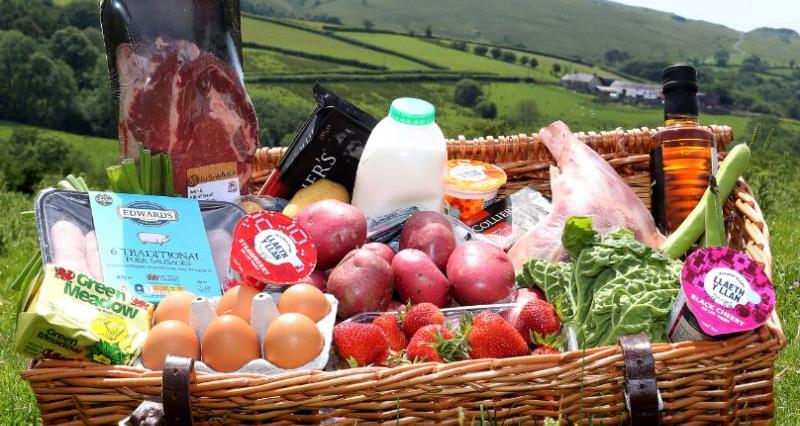Today [11 August] would mark the notional day in the calendar where the British larder would run bare if we fed the nation only British food from 1 January 2019.
John Davies said: “A nation must have the ability to feed itself and these figures show that Britain is falling short.
“With all the uncertainty surrounding Brexit and the current Welsh Government ‘Sustainable Farming and our Land’ consultation, we are now in a time of great uncertainty but also a time of real opportunity. NFU Cymru is ambitious for the future of our food and drinks industry and Welsh Government now has the chance to put food production and food security front and centre of the political agenda, and Welsh and British farmers are up for the challenge of feeding an ever growing population.
“Welsh Government has launched the ‘Sustainable Farming and our Land’ consultation on a future Welsh farming policy; concurrently they have also launched a separate consultation on a new strategic plan for the Welsh food and drink industry. I do feel that an opportunity has been missed to bring together the Welsh food sector, from farm to fork, in one comprehensive plan, with ambitious targets for the sustainable growth of the food and farming sector in Wales. Welsh Government has an opportunity to put this right.
“The Welsh farming industry is a strategically important one, producing the raw ingredients for a Welsh food and drink sector with a turnover of £6.8 billion, and a food and drink supply chain employing 217, 000 people – Wales biggest employer. Therefore maintaining viable, productive farms is the most effective way to ensure that we continue to protect and enhance our environment and landscape, in order for our rural communities, language and culture to thrive and prosper, and continue to sustainably grow the food and drink industry in Wales.
“Leaving the European Union in an orderly way presents us with the opportunity to shape our future. I sincerely hope that today reminds politicians of the real need to put in place a food and farming policy that works for the farming industry and the whole supply chain. This will allow the industry to continue to produce food to world-leading standards while protecting and enhancing the environment and meeting our aspiration for net zero carbon emissions by 2040.”
